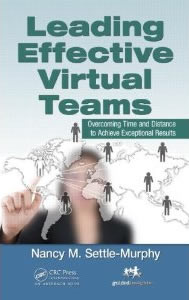“We make a living by what we get. We make a life by what we give.” – Winston Churchill
“No one has ever become poor by giving.” – Anne Frank
Each year, members of my (very large, extended) family vow to cut back on holiday gifts. (“Let’s do a Secret Santa! Or “Hey, how about a Yankee Swap?”) Despite the best intentions, we all usually end up frantically buying stuff for almost everyone – stuff most people don’t need and may not even want. Old habits die hard.
When thinking about the gifts I’ve loved the most, they’ve been those moments of connection, special experiences and time together that really matters. It’s never really been about the stuff.
If you’re looking for gifts that for teammates, colleagues, and maybe even your family members might appreciate, I have some suggestions. None of them cost a thing, except your time.
- Your undivided attention. When you’re speaking with someone else, whether an individual or a group, put aside everything else and really focus on the conversation. If you’re face to face, push aside other things and put down that %&^$#@ device. Maintain eye contact and observe both audible and physical cues. If you’re meeting virtually, try closing your eyes to listen deeply (making sure to let people know you haven’t fallen asleep!). Taking notes has a way of helping us to listen better and to show others we’re paying attention. Give affirming responses and demonstrate curiosity. Make people feel they’re more important than anything on your desk or screen.
- Respect peoples’ time. This gift takes many forms. Be punctual, and when you can’t, let people know immediately, rather than leaving them hanging. Refrain from asking someone for something you can easily find yourself in less time than it takes you to make that request. Respond quickly when someone has an urgent request, and even if you can’t find the answer in the moment, let them know when they can expect an answer. Avoid sending emails during off-hours, and if you must, be clear that you don’t expect a response until their usual work hours. And don’t even think about asking someone to give up their vacation or personal time!
- Facilitate introductions. Use your connections to help others. For example, offer to give a referral or suggest LinkedIn connections to your colleague who’s looking for work. Suggest people your co-worker can contact to learn how they solved similarly difficult situations. Make introductions to people who are likely to benefit by getting to know each other, just because you can. Be a connector, especially valuable in a world where so many feel disconnected.
- Show gratitude. Acknowledging appreciation goes a long way, even if it’s via a quick email or text. Better still is a call. Even better: A handwritten note with or without some small token of appreciation, like a book, a special coffee or tea, or a gift card to a local eatery. The more specific you are about why you’re grateful, the more meaningful it will be. When team members are remote, it’s especially important to go out of your way to make them feel seen and valued.
- Share the wealth. If you’ve especially enjoyed a book, movie, TV series, website or article, let people know. Take a few minutes to share it and say why you liked it and why they might like it, too. Even better: Set aside a few minutes during team meetings so everyone can share some of their favorite resources, and encourage them to post the links in a team portal as part of a shared resource bank.
- Contribute your wisdom and experience. If you suspect that some of your work might be useful to others, like a reusable template or checklist, a repository of insightful questions, sites for free photos and images, etc., make these available to others in a shared place where people can easily find them. Provide a brief description and explain how they can be used. The more you contribute, the more likely others will be to follow your lead.
- Transfer your knowledge. While it may take you just a few minutes to draft that email or review that agenda for a colleague, go one better. Take the time to show them how to do it themselves, so they’ll be self-sufficient next time, explaining the logic behind your choices. Even better: Make a quick video or jot down a few notes people can refer to next time.
Giving to others doesn’t have to take a lot of time. In fact, the more you build this “sharing” mentality into your day-to-day work, the less extra time it will take. You may need to set boundaries for yourself and others about what kind of help you’re willing and able to give, and under what circumstances. By sharing these gifts more freely, not only will you feel better, but your entire organization can stand to profit—especially if others follow your lead.
Note: AI was not used, and never will be, to generate any content in my Communique.
Links
Guided Insights links- – past Communiques
- How to Create Opportunities for More Aha! Moments, for Yourself and Your Team
- Tips for Cultivating a Culture of Trust Across Hybrid Remote Teams
- Rewarding, Recognizing and Celebrating Achievements from Afar
- Tips for Creating a Remote-first Workplace to Make Life Easier for Everyone
Other Helpful Links
- Give and Take by Adam Grant. (The discussion guide for his book poses some great questions.)
- 8 Tips for Holiday Gift-Giving at Work (hbr.org)
- Our Favorite Management Tips About Showing Gratitude at Work (hbr.org)
- Giving Thanks at Work: An HBR Guide




